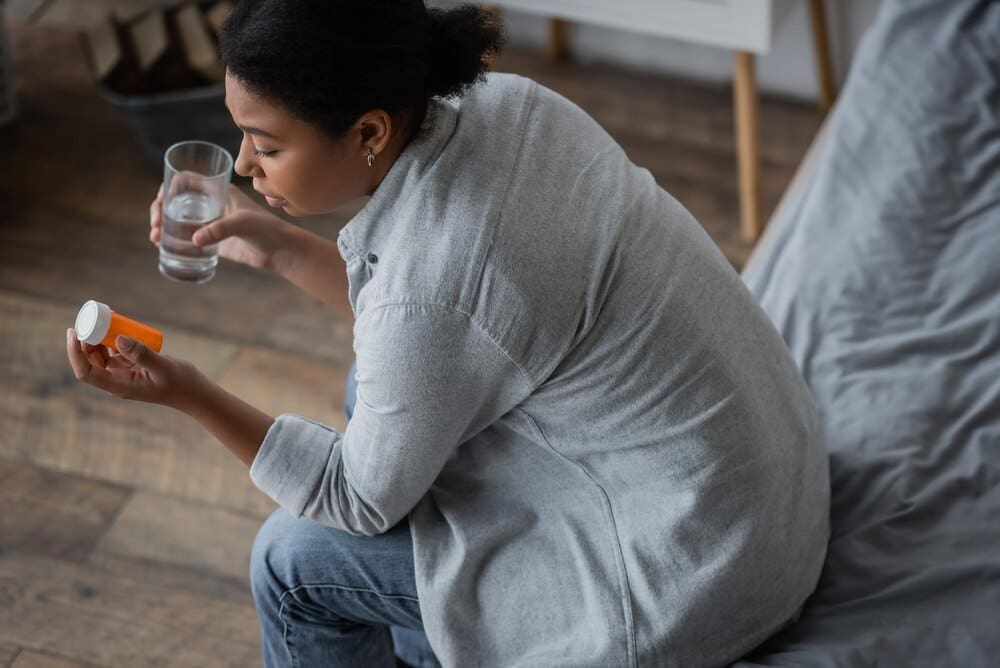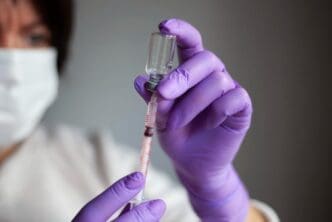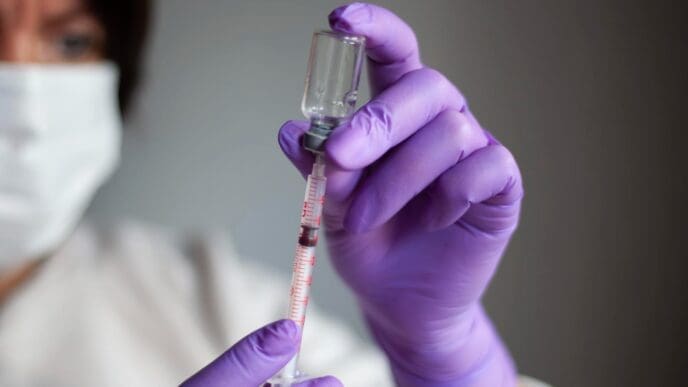An emerging body of scientific research is exploring a fascinating and once-unlikely connection: the link between the bacteria in our gut and our mental health. For the millions of people worldwide grappling with depression and anxiety, scientists are investigating whether probiotics—live microorganisms often called “good bacteria”—could offer a new avenue for support. This burgeoning field, known as “psychobiotics,” centers on the gut-brain axis, a complex communication network suggesting that a healthy gut microbiome may be a key component of a healthy mind. While the evidence is still developing and probiotics are not a replacement for established treatments, the findings are promising enough to reshape our understanding of mental wellness.
The Gut-Brain Axis: A Superhighway to Your Mind
To understand how a probiotic could possibly influence your mood, it’s essential to first understand the gut-brain axis. This isn’t a physical structure, but a sophisticated, bidirectional communication system connecting the central nervous system (your brain and spinal cord) with the enteric nervous system (the nervous system of your gut).
Think of it as a superhighway with traffic flowing in both directions. Your brain sends signals to your gut, which is why stress can cause stomach aches or digestive upset. But, crucially, your gut also sends signals back to your brain, influencing everything from mood and cognition to behavior.
This communication happens through several channels. The vagus nerve, one of the longest nerves in the body, acts as a direct physical link. The immune system also plays a role, as gut microbes help regulate inflammation, a factor increasingly implicated in depression. Most surprisingly, the gut is a major production hub for neurotransmitters, the chemical messengers of the brain. In fact, it is estimated that up to 95% of the body’s serotonin, a key neurotransmitter for regulating mood, is produced in the gut.
What Are Psychobiotics?
The term “psychobiotic” was coined to describe a specific class of probiotics that, when ingested in adequate amounts, may produce a positive mental health benefit. Not all probiotics are psychobiotics. The potential benefits are highly dependent on the specific strains of bacteria used.
The most studied strains for mental health applications typically belong to the Lactobacillus and Bifidobacterium families. For example, strains like Lactobacillus rhamnosus, Lactobacillus helveticus, and Bifidobacterium longum have appeared in multiple studies examining their effects on stress, anxiety, and depressive symptoms.
These specialized bacteria are thought to work by interacting with the gut-brain axis. They can help strengthen the gut lining, reduce inflammation throughout the body, modulate the stress response system (the HPA axis), and even influence the production of those vital neurotransmitters like serotonin and GABA (gamma-aminobutyric acid), which has a calming effect.
The Evidence for Probiotics and Depression
Research into the use of psychobiotics for depression has yielded encouraging, though not yet conclusive, results. Several meta-analyses—studies that pool the results of multiple previous studies—have found that, overall, probiotics can lead to a significant reduction in depressive symptoms compared to a placebo.
The effect appears to be most pronounced in individuals with mild to moderate depression. The mechanism is believed to be multifaceted. By tamping down systemic inflammation, which is often elevated in people with major depressive disorder, probiotics may help alleviate one of the physiological drivers of the condition.
Furthermore, by influencing the production of serotonin and other mood-regulating chemicals in the gut, these bacteria may provide the brain with more of the raw materials it needs to maintain emotional balance. Some studies also show that certain probiotic strains can lower levels of cortisol, the primary stress hormone, which is often chronically elevated in individuals with depression.
However, it is critical to note that the research field is still young. Many studies are small, and results can be inconsistent. The specific strains, dosage, and duration of treatment vary widely between studies, making it difficult to draw firm conclusions or create universal recommendations. Scientists are still working to identify which specific strains are most effective for which individuals.
The Evidence for Probiotics and Anxiety
The potential role of probiotics in managing anxiety is similarly promising. Anxiety disorders, much like depression, have been linked to gut dysbiosis (an imbalance of gut microbes) and inflammation. Therefore, the same mechanisms that may help with depression could also apply to anxiety.
Several clinical trials have investigated the effects of probiotics on various forms of anxiety, including generalized anxiety, social anxiety, and everyday stress. One notable study found that a multi-strain probiotic taken for four weeks reduced cognitive reactivity to sad moods, such as rumination and aggressive thoughts, which are key risk factors for depression and anxiety.
Other research has shown that specific probiotic strains can help lower cortisol levels and reduce self-reported feelings of stress and anxiety in healthy but stressed individuals. The theory is that by supporting a healthy gut environment, probiotics can help regulate the body’s stress response, making individuals more resilient to psychological stressors.
As with depression, the evidence for anxiety is not yet definitive. The effects are often modest, and more large-scale, long-term human trials are needed to confirm these early findings and determine optimal treatment protocols. The scientific community is optimistic but cautious.
Practical Considerations and Important Caveats
While the science is exciting, it’s vital for anyone considering probiotics for mental health to approach them with a clear, evidence-based perspective. They are not a magic pill and should be considered one part of a comprehensive wellness strategy.
Probiotics Are Not a Standalone Treatment
This is the most important takeaway. Probiotics should never be used as a replacement for established, first-line treatments for depression and anxiety, such as psychotherapy (like Cognitive Behavioral Therapy) or prescribed medications (like SSRIs). At best, they represent a potential adjunctive therapy—something used alongside primary treatments to potentially enhance their effects or provide additional support.
Choosing a Probiotic Supplement
The supplement market can be a confusing landscape. Because the FDA does not regulate supplements with the same rigor as pharmaceuticals, quality and potency can vary dramatically. If you decide to try a probiotic, look for products that specify the exact strains used, as benefits are strain-specific. Also, check the CFU (Colony Forming Units) count, which indicates the number of viable bacteria per dose; many studies use dosages in the billions.
Look for brands that engage in third-party testing from organizations like NSF International or U.S. Pharmacopeia (USP). This provides some assurance that the product contains what it claims on the label and is not contaminated.
Food First, Supplements Second
You don’t necessarily need a pill to get a dose of beneficial bacteria. Probiotics are naturally found in a variety of fermented foods. Incorporating these into your diet is a great way to support gut health while also getting other valuable nutrients.
Excellent food sources of probiotics include plain yogurt with live and active cultures, kefir (a fermented milk drink), sauerkraut (ensure it’s unpasteurized), kimchi, miso, and kombucha. These foods provide a diversity of bacterial strains and also contain prebiotics—types of fiber that feed the good bacteria already living in your gut.
The Future of Mental Health Treatment
The exploration of psychobiotics represents a paradigm shift in how we view mental health—not just as a disorder of the brain, but as a whole-body condition in which the gut plays a surprisingly central role. While much more research is required to solidify their place in clinical practice, the connection between our gut microbiome and our mood is undeniable. For now, viewing probiotics as a supportive element within a holistic approach—one that includes a balanced diet, regular exercise, sufficient sleep, and professional mental health care—is the most prudent and promising path forward.












